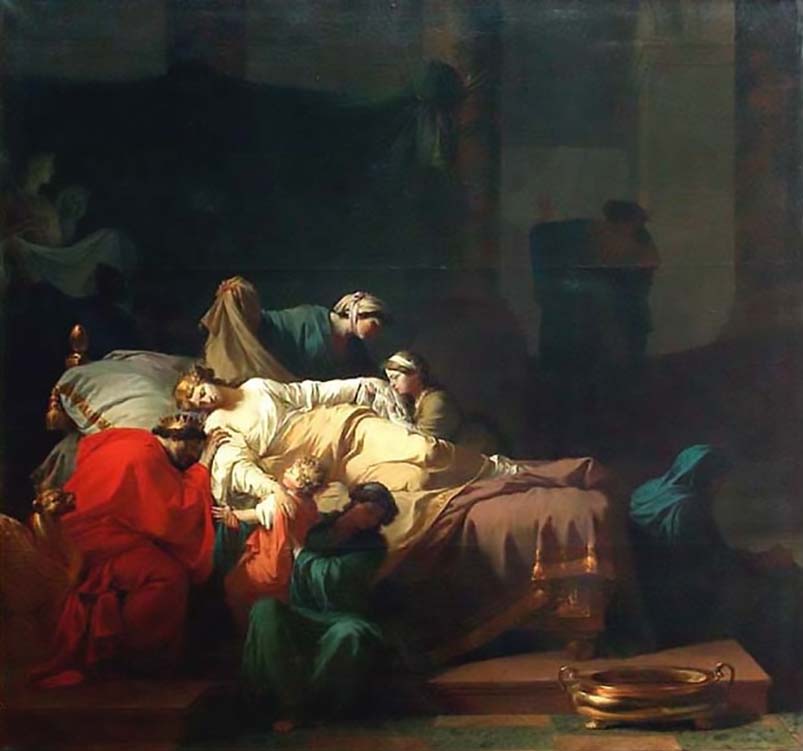Alcestis
Alcestis was the mythical queen of Thessaly, wife of King Admetus, who came to personify the devoted, selfless, woman and wife in ancient Greece. While the story of Admetus' courtship of Alcestis was widely told, she is best known for her devotion to her husband in taking his place in death and her return to life through the intervention of the hero Herakles (better known as Hercules). There are two versions of Alcestis' story, one from the Bibliotheca of Pseudo-Apollodorus (1st/2nd century CE) in which Hercules plays no part at all, but thanks to the playwright Euripides (480-406 BCE) and his play Alcestis (written 438 BCE), the version featuring Hercules is the better known.
Although the Bibliotheca of Pseudo-Apollodorus was compiled after Euripides, the stories it contains are considered much older. The story in which Alcestis is returned to life by Persephone, therefore, probably pre-dates Euripides' play and he reworked the story for greater dramatic effect and, of course, to capitalize on the popularity of the hero Hercules who, by Euripides' time, would have been a significant draw at the box office.
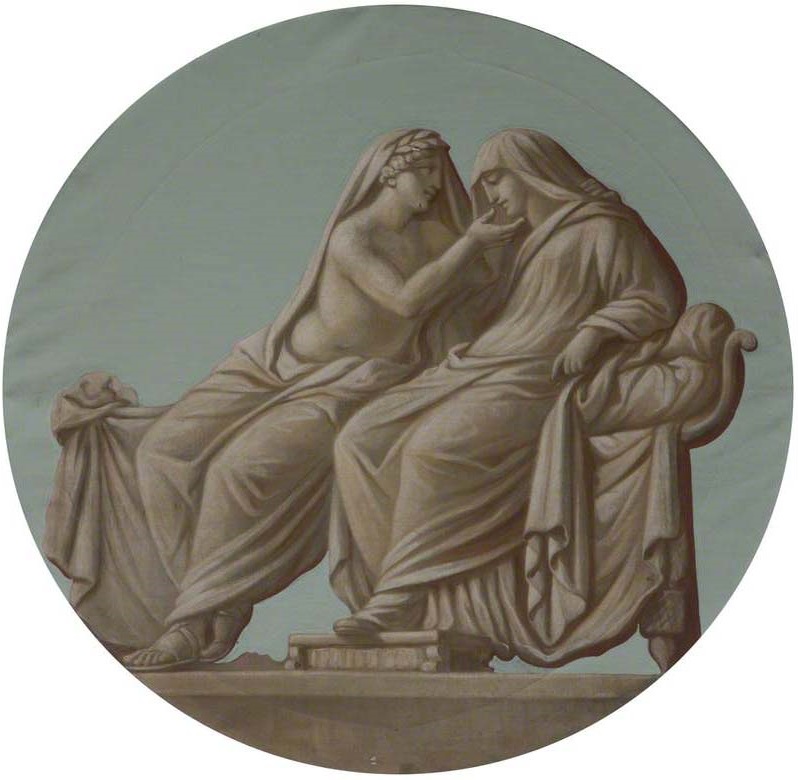
Alcestis and Admetus
Both versions begin the same way and emphasize the importance of loyalty, love, and kindness. Once upon a time there lived a gentle king named Admetus who ruled over a small kingdom in Thessaly. He knew each of his subjects by name and so, one night when a stranger appeared at his door begging for food, he knew the man must be from a foreign land but welcomed him into his home anyway. He fed and clothed the stranger and asked him his name, but the man would give no answer other than to ask Admetus if he could be the king's slave. Admetus had no need for another slave but, recognizing the man was in distress, took him on as shepherd for his flocks.
The stranger stayed with Admetus for a year and a day and then revealed himself as the god Apollo. He had been sent to earth by Zeus as punishment and could not return to the realm of the gods until he had served a mortal as a slave for a year. Apollo thanked Admetus for his kindness and offered him any gift he desired, but Admetus said he had all he needed and required nothing for what he had done. Apollo told him he would return to help him whenever he needed anything in the future and then vanished.
Not long after this, Admetus fell in love with the princess Alcestis of the neighboring city of Iolcus. Alcestis was kind and beautiful and had many suitors but only wanted to marry Admetus. Her father Pelias, however, refused Admetus' request for her hand and stipulated that the only way he would give his daughter to him would be if he rode into the city in a chariot pulled by a lion and a wild boar.
Admetus was despondent over this situation until he remembered the promise of Apollo. He called on the god who appeared, wrestled a lion and a boar into submission, and yoked them to a golden chariot. Admetus then drove the chariot to Iolcus, and Pelias had no choice but to give him Alcestis in marriage. Apollo was among the wedding guests and gave Admetus an unusual gift: a kind of immortality. Apollo told them how he made a deal with the Fates who governed all so that, if ever Admetus became sick to the point of death, he might be well again if someone else would volunteer to die in his place.
The couple lived happily together for many years and their court was famous for their lavish parties but then, one day, Admetus fell ill and the doctors said he would not recover. The people of his court remembered the gift of Apollo and each felt that someone should give their life to save so kind and good a king, but no one wanted to do so themselves. Admetus' parents were old and so it was thought that one of them would volunteer but, even though they had only a short time left on the earth, they refused to surrender it. None of the court, nor any of Admetus' family, nor any of his subjects would take the king's place on his death bed - but Alcestis did.
At this point the two stories diverge. In the older version, Alcestis agrees to take her husband's place and dies. Her spirit is led down into the underworld by Thanatos (death) and presented to Queen Persephone. Persephone asks who this soul is who has come willingly to her realm, and Thanatos explains to her the situation. Persephone is so moved by the story of Alcestis' love and devotion to her husband that she orders Thanatos to return the queen to life. Alcestis and Admetus then live happily ever after.
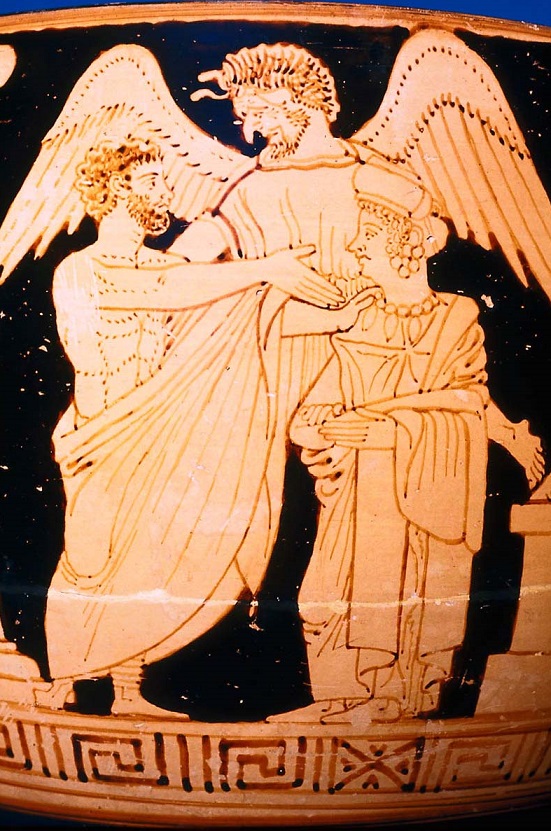
Hercules and Alcestis
In the version popularized by Euripides in his play Alcestis, however, Hercules plays the pivotal role in bringing Alcestis back from the dead. In this version, as in the first, no one will take Admetus' place in death except for Alcestis. Admetus is informed of this, accepts her sacrifice, and begins to recover as his queen grows weaker. The entire city falls into mourning for Alcestis as she hovers on the brink between life and death. Admetus stays by her bedside and she requests that, in return for her sacrifice, he should never marry again and so keep her memory alive. Admetus agrees to this and also swears he will never throw another of their parties again nor allow any merrymaking in the palace once she has gone; after these promises are made, Alcestis dies.
Hercules was an old friend of the couple, and he arrives at the court knowing nothing of Alcestis' death. Admetus, not wishing to spoil his friend's arrival, instructs the servants to say nothing about what has transpired and to treat Hercules to the kind of party the court was known for. The servants, however, are still upset over the loss of the queen, and Hercules notices that they are not serving him and his entourage properly. After a number of drinks, he begins to insult them and ask for the king and queen to come remedy this poor performance on the servant's part, when one of the maidservants breaks down and tells him what has recently happened.
Hercules is mortified by his behavior and so travels to the underworld where Thanatos is leading Alcestis' spirit toward Persephone's realm. He wrestles death and frees the queen, bringing her back up into the light of day. Hercules then leads her to where Admetus is just returning from her funeral. He tells the king that he must depart because he is in the midst of performing one of his Twelve Labors (to bring back the Mares of Diomedes) and asks him to take care of this lady while he is gone. Admetus refuses because he promised Alcestis that he would never marry again, and it would be unseemly for this woman to reside at the court so soon after his wife's death.
Hercules insists, however, and places Alcestis' hand in Admetus'. Admetus lifts the woman's veil and finds it is Alcestis returned from the dead. Hercules tells him that she will not be able to speak for three days, and will remain pale and shadow-like, until she is purified, after which time she will become as she always was. Euripides' play ends there, while other versions of the myth continue the story further and conclude with everything then happening as Hercules has said, and Alcestis and Admetus living a long and happy life together until Thanatos returns and takes them both away together.
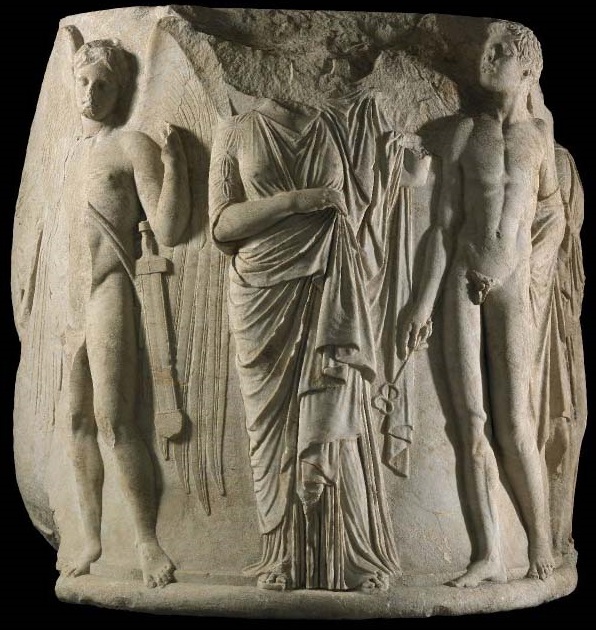
Conclusion
The story would have served the usual purposes of ancient Greek literature of entertaining while also illustrating cultural values, in this case loyalty and devotion. An ancient audience, like any in the modern-day, would have been faced with the question of what they would do under similar circumstances: would they give their life freely for someone they loved? How one answered that question would say a great deal about the individual's values.
Extrapolating from the specifics of the story in which one individual willingly gives her life for another, the audience might further ponder what they might give their lives for. The concept of eusebia in ancient Greece is often translated into English as piety, but it was more of a social code which dictated how one behaved in society. Deference to one's social superiors and the state was an important aspect of this code and the story of Alcestis, besides its long-standing reputation as one of the greatest romances of ancient Greece, could have also encouraged an audience to recognize the value of selflessness in giving one's all for the good of others, specifically the state. In surrendering one's self or one's sons, brothers, fathers, husbands to the armed forces, one was following the selfless paradigm of Alcestis and was assured of an honorable remembrance.
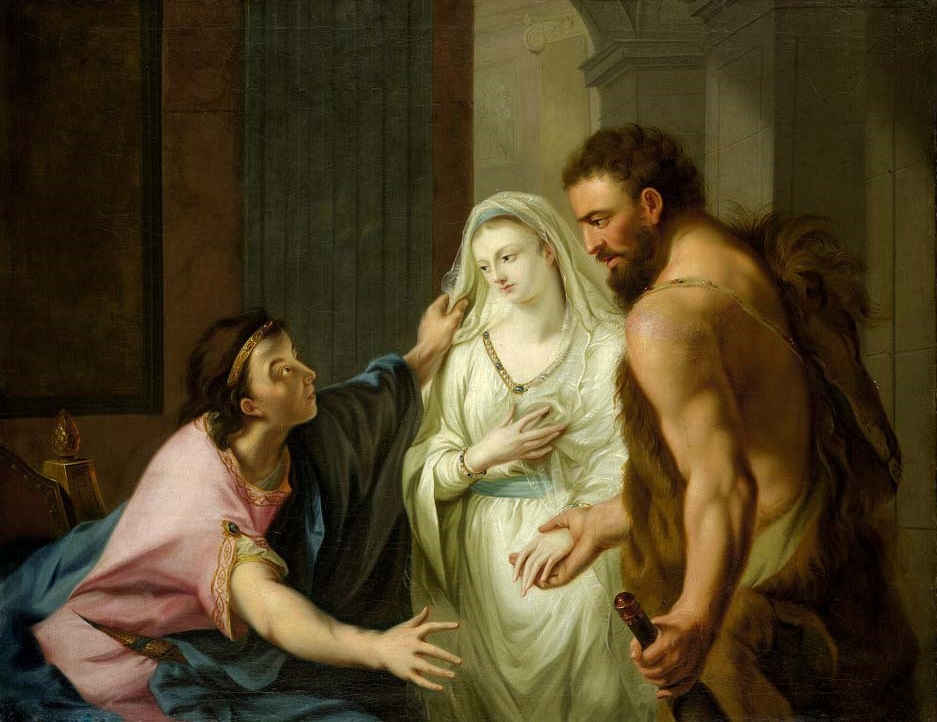
Sources
Pseudo-Apollodorus, Bibliotheca 1.9.10
Antoninus Liberalis, Metamorphosis 23
Pseudo-Apollodorus, Bibliotheca 1.9.15
Roman, L., & Roman, M. (2010). Encyclopedia of Greek and Roman mythology., p. 54, at Google Books
Pseudo-Apollodorus, Bibliotheca 2.6.2
Antoninus Liberalis, The Metamorphoses of Antoninus Liberalis translated by Francis Celoria (Routledge 1992).
Cotterell, Arthur, and Rachel Storm. The Ultimate Encyclopedia of Mythology. Hermes House.
Pseudo-Apollodorus, The Library with an English Translation by Sir James George Frazer, F.B.A., F.R.S. in 2 Volumes, Cambridge, MA, Harvard University Press; London, William Heinemann Ltd. 1921
"Ancient History Encyclopedia", by Joshua J. Mark


